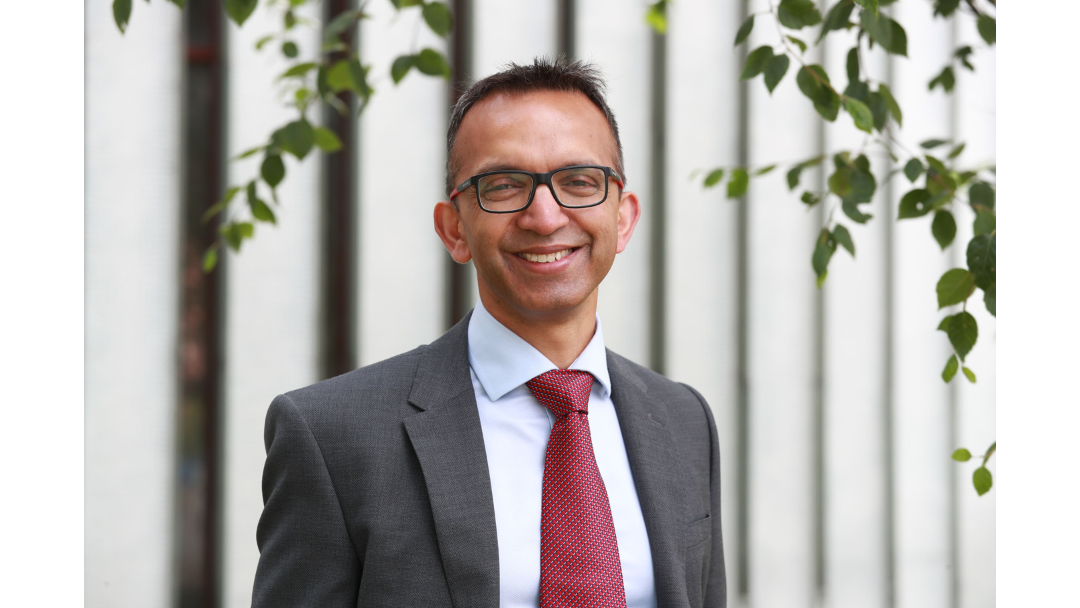Collaboration and communication strategies that were tempered during the heat of the Covid pandemic have been a fundamental aspect of Lanarkshire’s firebreak.
NHS Lanarkshire recently announced a significant reduction in pressure across its three acute hospitals, improving patient care and experience following the instigation of the highly successful nine-day whole system effort. The firebreak, part of Lanarkshire’s positive and ongoing Operation FLOW plan, incorporated acute sites, community health and social care, and primary care, all working together.
A major facet of the firebreak – and ongoing endeavours to improve patient care – was the intensive application of Planned Date of Discharge (PDD). The PDD programme aims to establish a clear date of when someone will go home (or to a community setting) – at the earliest possible stage during their stay in hospital. Benefits range from enhanced patient experience to increased system capacity.
The approach, which was piloted in University Hospital Hairmyres in 2020, by South Lanarkshire Health and Social Care Partnership, involves all facets of the health and care system collaborating and communicating seamlessly.
PDD has since been scaled up across Lanarkshire and has been used as an exemplar of good practice across Scotland as part of the national Discharge without Delay (DwD) Programme.
Soumen Sengupta, Director of Health and Social Care for South Lanarkshire, praised the well-established partnership ethic supporting the firebreak and ongoing programme of improvement.
“Echoing the sentiment of my colleagues over the last few days, I want to commend and thank all staff across our acute sites, community health and social care, and primary care.
“As a Lanarkshire-wide team we successfully achieved the first phase of changes to our system that have been so needed.
“The firebreak was characterised by tremendous effort and focus across our whole system and the concentrated application of techniques – including PDD – that have been years in the making.
“There is work to do, and this remains a live and ongoing Operation. I have full confidence we will, collectively, build on this momentum.”
By providing a clear route-map through the hospital ‘journey’, PDD is geared to reducing any uncertainty and anxiety in patients.
Fundamental to PDD is excellent communication between all professionals, from acute, primary care and community, working with the patient at frequent Multidisciplinary team meetings (MDTs).
The MDTs have also been identified as a marked success of the firebreak.
Marianne Hayward instigated PDD in Lanarkshire and is now the National Partnership Lead for Urgent and Unscheduled Care, driving the national DwD programme.
She has praised the continued and exemplary dedication of staff and partners.
“PDD is not a new idea and it’s been in place for some time in Lanarkshire,” said Marianne. “The recent period had saw a concerted focus on applying its very simple but effective elements.
“PDD is based on an improved system of working, with smoother, more seamless links between NHS staff, the hospital-based social care workers and the community team.
“In effect, his can be distilled down to strengthening collaboration and communication – which is already underpinned by the existing compassion of staff and partners.”
Marianne added: “Although this is part of an improvement journey, and there will more challenges to negotiate moving forward, we are delighted by the positive indications the firebreak in Lanarkshire has yielded.
“PDD was and is one part of this, but the outcomes offer yet more concrete evidence of the key principles working, with benefits for patients and staff alike.”
PDD FACTFILE
- Comprehensive and clear communications – including a (visual, written and audio elements) have been pushed to Lanarkshire staff and partners throughout Operation FLOW. These elements, developed in Lanarkshire, have also informed the national approach.
- As well as recent notable success, the PDD programme also saw a substantial reduction in delayed discharge rates in the pilot phase. Figures presented to South Lanarkshire’s Integration Joint Board in December 2020 outlined a 60 per cent reduction in people who experienced a delay in getting home, compared to the previous year.
- For further information on the Communication Strategy designed to support the implementation of DwD, contact DwD Communication Adviser Euan Duguid.
- Further information is available on NHS Lanarkshire’s Operation Flow at https://www.nhslanarkshire.scot.nhs.uk/operationflow/



